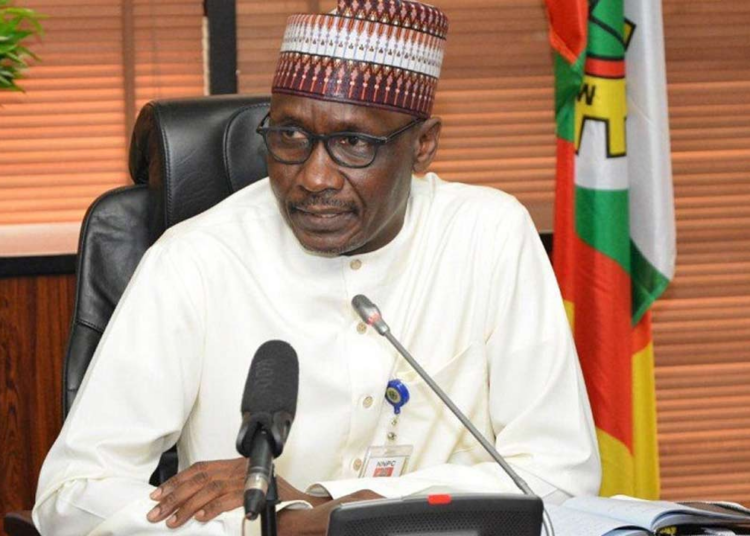The federal government yesterday officially wound down the Nigerian National Petroleum Corporation, NNPC, and handed all its assets and liabilities to the Nigerian National Petroleum Company Limited, NNPCL,
as enabled the Petroleum Industry Act (PIA) 2021.
This is as the NNPCL revealed that the amount being spent as subsidy on Premium Motor Spirit, popularly called petrol, had crossed N400 billion monthly.
NNPCL was set up in 2021 in line with the Corporate Affairs Commission’s companies registration rules following the enactment of the PIA.
Speaking at an event to officially mark the end of NNPC in Abuja, the minister of State, Petroleum Resources, Chief Timipre Sylva said with the reforms introduced by the federal government, NNPCL is expected to be a competitive and commercially oriented company.
Chief Sylva explained that the reforms are expected to make the Nigerian oil and gas industry attractive to investors both locally and foreign.
According to him, “The PIA empowered NNPC Limited to operate like every private company in Nigeria with exemption from the Fiscal Responsibility Act, Public Procurement Act and TSA in order ensure there are no excuses for failure.
“In return for this empowerment the PIA expects a strong commercially oriented National Energy company with an obligation to operate profitably and deliver dividends to shareholders
“NNPC Limited is positioned to lead Africa’s gradual transition to new energy, by deepening natural gas production to create low-carbon alternatives and change the story of energy poverty at home and around the world”.
Speaking earlier, the group chief executive, NNPCL, Mr. Mele Kyari explained that the oil company was spending about N202 as subsidy on every litre of petrol consumed across the country, stressing that about 65 million litres of PMS was pumped daily into the market by NNPCL to keep the country wet.
Although he said the oil company would continue to meet its obligations by providing PMS for Nigeria, Kyari pointed out that the over N400bn monthly subsidy had been a severe strain on NNPCL’s cash flow.
NNPCL is the sole importer of petrol into Nigeria and has continued to play this role for several years running, bearing the huge cost of fuel subsidy.
Other private oil marketers stopped importing petrol into Nigeria due to the difficulty encountered in accessing the United States dollars, required for the imports of PMS.
The NNPCL boss said, “Today, by law and the provisions of the Appropriation Act, there is subsidy on the supply of petroleum products, particularly PMS into our country. In current data terms, three days ago the landing cost was around N315/litre.
“Our customers are here, we are transferring to each of them at N113/litre. That means there’s a difference of close to N202 for every litre of PMS we import into this country. In computation, N202 multiplied by 66.5 million litres, multiplied by 30 will give you over N400bn of subsidy every month.”
Kyari said the continuous funding of petrol subsidy by NNPCL had been ongoing without refunds from the Federal Ministry of Finance, Budget and National Planning, despite the fact that subsidy had been budgeted for in the Appropriation Act.
“There is a budget provision for it. Our country has decided to do this. So we are happy to deliver this, but it is also a drain on our cash-flow, and I must emphasis this.
“For as we continue to support this, you will agree with me that it will be extremely challenging for us to continue to fund this from the cash-flow of the company when you do not get refunds from the Ministry of Finance,” he stated.
Kyari added, “We are working with them (finance ministry), but it is an extensive pain on the cash-flow of our account. However, we will continue to support this country and deliver energy security.”
On the NNPCL’s assets, Kyari noted that the new company with over $60 billion in assets would look to boost its profit from the current $2 billion declared by the oil corporation for 2021 operation.
Kyari pointed out that NNPCL has a power brand and it’s able to attract funding for its businesses, assuring that the company would deliver energy security to the Nigerian people while making money for the country.
He said: “By fiscal 2020, we returned this company from 43 years of loss to a profit position of N287 billion and by 2021 we came to a profit level of N674 billion. We believe we’ll do better in 2022 despite all the challenges. But I must also add that this is not a N670 billion company. By the way, this is less than $2 billion. We’re not a $2 billion profit company.
“You can’t do $2 billion with $60 billion assets. So we can still do better. We have seen our peers who have maybe 50 percent of these assets, and they have declared close to $9 billion. It’s possible in this business and we’ll catch up. So how do we catch up? First, we will reduce our costs. We’re driving down costs substantially because when your cost is high, you run into trouble, you cannot make profits.
“We’re growing our production. With all these challenges we will grow our production because many of the things today you can call them force majeure but even force majeure is created by something and we’re responding to that something that is creating the force majeure situation and we’re dealing with it.
“And that’s why in July 2022, we went down to as close as one million barrels per day of crude oil and condensate combined. That was pathetic, unfortunately. But I dare say that maybe it was avoidable and we responded to it. Today, as of yesterday, we have crossed 1.6mbpd. This is not rocket science. And we have a line of sight to recover to the budget level of 1.8mbpd”, he disclosed.











